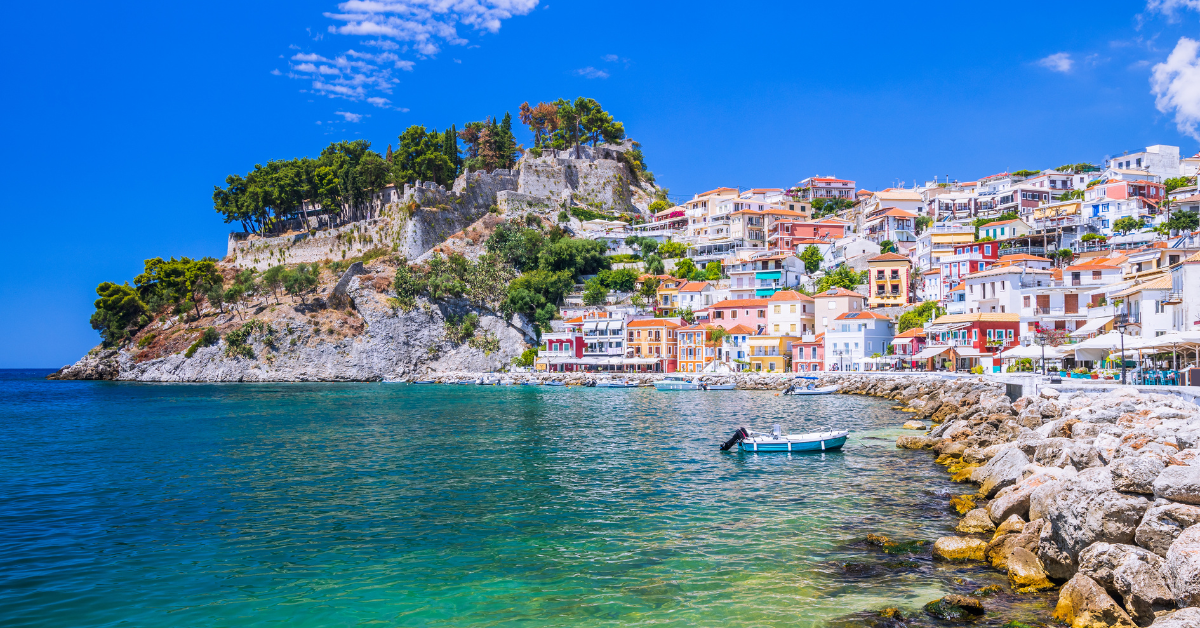Greece, known as the birthplace of ancient civilization, has long fascinated people worldwide. In Japan, it is usually written in katakana as “ギリシャ,” but historically it was expressed in kanji as “希臘 (Kirō).” This unique form reflects cultural exchange with China and highlights how Japan sought to understand the wider world. Beyond its name, Japanese people associate Greece with mythology, philosophy, tourism, and sports, forming a rich and layered image of the country.
The Historical Background of the Kanji “希臘”
The kanji representation of Greece, “希臘,” was adopted from a Chinese transliteration. Using kanji to represent foreign country names was common in Japan before the modern era, and such names often appeared in books and newspapers. This method of phonetically matching sounds with kanji was also applied to many other countries.
| Country | Kanji Form | Reading | Notes |
|---|---|---|---|
| Greece | 希臘 | Kirō | Transliterated from Chinese |
| England | 英吉利 | Eigirisu | Abbreviated to 英国 (UK) |
| France | 仏蘭西 | Furansu | 仏 reflects the “Fran” sound |
| Germany | 独逸 | Doitsu | Also shortened to 独国 |
| America | 亜米利加 | Amerika | Basis of the modern term 米国 |
While rarely used today, these forms remain important traces of how Japan once sought to understand the wider world.
The Appeal of Greek Mythology to the Japanese
One of the strongest associations Japanese people have with Greece is Greek mythology. Stories of gods like Zeus and Athena, and heroes such as Hercules and Odysseus, have found their way into Japanese children’s literature, novels, and anime.
The reason Greek mythology resonates in Japan lies in its familiar structure: heroes overcoming trials echo the themes of Japanese folktales and the spirit of bushidō. Additionally, the human-like emotions and flaws of the gods create a sense of relatability.
| Mythological Elements | Japanese Perception |
|---|---|
| Stories of gods | Popular as themes in anime and novels |
| Heroic deeds | Resemble bushidō and Japanese folktales |
| Mythological worldview | Basis for fantasy works |
Greece as the Source of Philosophy and Democracy
Greece is recognized as the birthplace of democracy and the home of philosophers such as Socrates, Plato, and Aristotle. Their ideas were introduced to Japan in the Meiji period and became a crucial gateway for understanding Western thought.
The notion of democracy in particular has deeply influenced modern Japan. Citizen participation in politics and the parliamentary system are built upon ideals that originated in ancient Greece.
| Aspect | Greek Influence |
|---|---|
| Politics | Birth of democracy, foundation of parliamentary systems |
| Philosophy | Development of intellectual traditions |
| Education | Greek philosophy integrated into modern Japanese learning |
Greece as a Tourist Destination
From the perspective of tourism, Greece holds strong appeal. The blue and white landscapes along the Aegean Sea and the ruins of Athens draw many Japanese travelers. Santorini and Mykonos are popular honeymoon destinations, while the Parthenon and other ruins offer a tangible connection to Western civilization.
| Popular Destination | Characteristics |
|---|---|
| Santorini | Whitewashed houses with Aegean Sea views |
| Mykonos | Windmills and stone-paved streets |
| Athens | Parthenon and historic ruins |
For travelers, Greece is seen as a place where they can enjoy both world heritage and breathtaking natural scenery.
Greece as the Birthplace of Sports and the Olympics
Greece is also famous as the origin of sports. The ancient Olympic Games began in the 8th century BCE, serving both as a festival for the gods and as a means of interaction among city-states.
The modern Olympics also began in Athens in 1896, and its ideals spread worldwide. In Japan, coverage in newspapers during the Meiji era fueled admiration for Greece as a country of international exchange through sports.
| Era | Olympic Features | Impact on Japan |
|---|---|---|
| Ancient | Religious festival, city-state interaction | Sparked interest in the union of sports and religion |
| Modern | First held in 1896, Athens | Inspired Japanese aspirations for global engagement |
| Contemporary | Largest global sports event | Japanese athletes achieved success in Athens 2004 |
The 2004 Athens Games further reinforced Greece’s image in Japan as a “sacred land of sports.”
The Comprehensive Image of Greece for Japanese People
For Japanese people, Greece is not limited to a single impression. Mythology, philosophy, tourism, and sports all contribute to a multifaceted image that combines admiration and familiarity.
Conclusion
The kanji expression of Greece, “希臘,” stands as evidence of Japan’s efforts to understand foreign nations and remains part of cultural history. The Japanese perception of Greece encompasses intellectual aspects represented by mythology and philosophy, the visual beauty of its tourist sites, and the athletic legacy of the Olympic Games.
Learning about “希臘” is a first step toward a deeper appreciation of Greece. Through culture, history, and sports, the ties between Japan and Greece will continue to inspire new perspectives.






